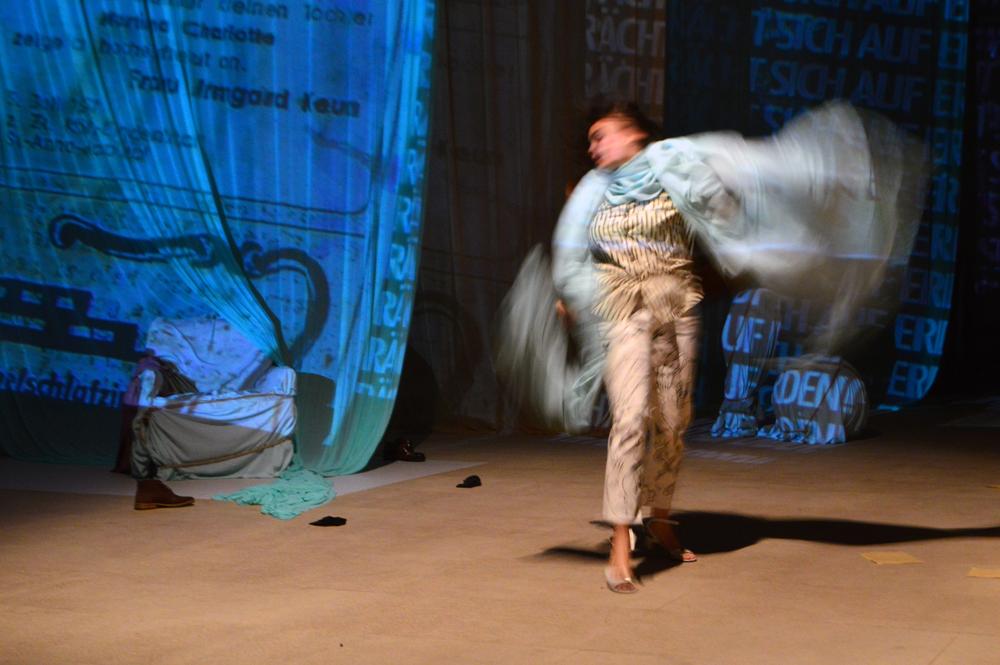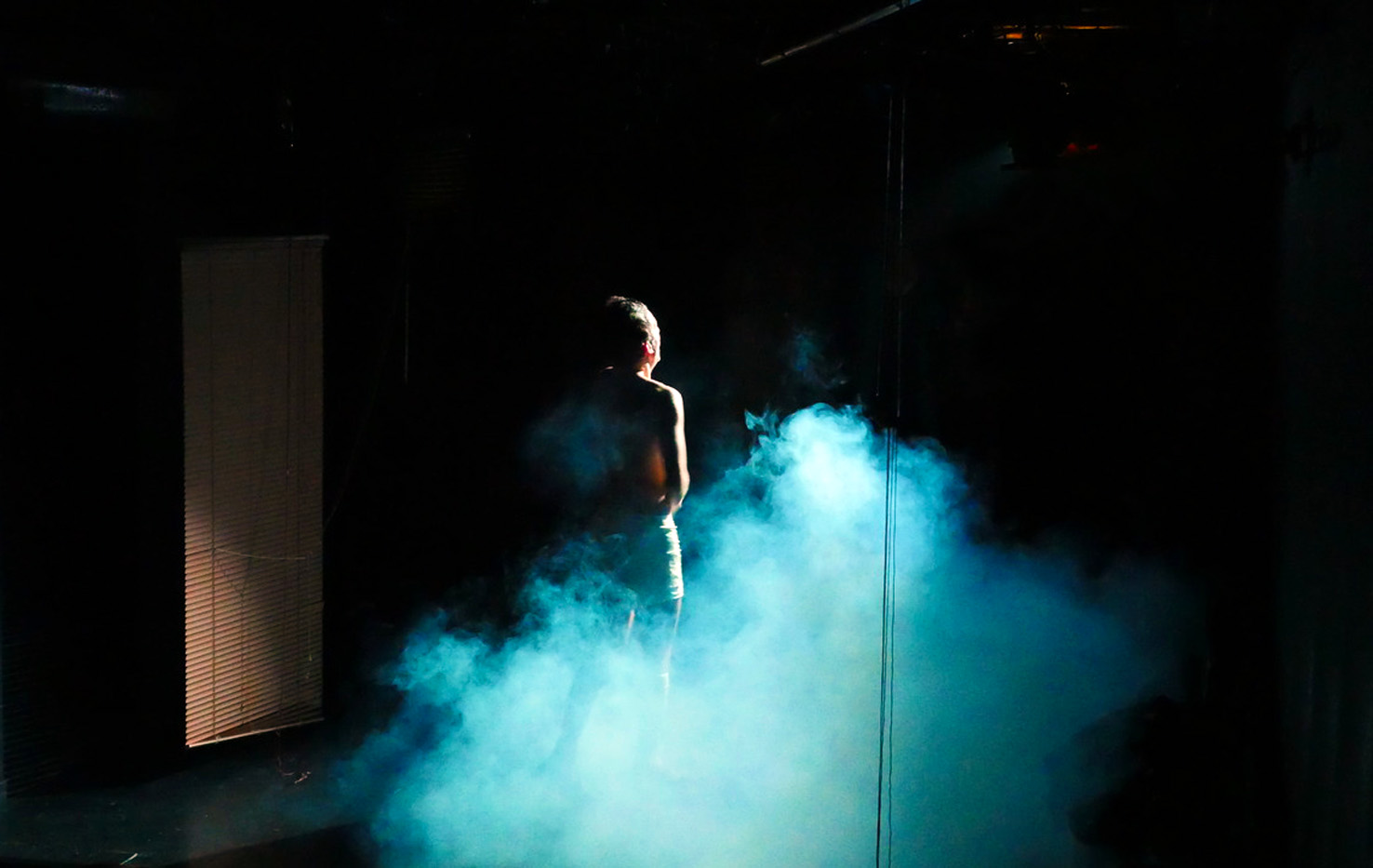Eleonora Pedretti is a freelance stage and costume designer working with directors, performers and collectives from all over Germany. She comes to Berlin from Italy, where she now lives and completed her Master’s degree at the TU in Bühnenbild_Szenischer Raum in 2017.
When you started your studies at the Bühnenbild_Szenischer Raum program, did you already have your current job in mind?
To be honest… not at all. At the time of my application for the master’s program, I was convinced that becoming a stage and costume designer was the appropriate job for me. Since I studied at art academies in Italy and the U.S. and subsequently worked in fashion and installation art, it felt quite logical to take the step into performing arts. Looking back, I now realize that I made the decision more out of fascination, without knowing what exactly the profession would be like and, above all, what the dynamics behind the related institutions were.
What happened after graduation, what did your entry into the field look like?
During the master’s program, I had the opportunity to do some realization projects. Therefore, I already had basic knowledge of how a production runs and what steps have to be taken. Immediately after my thesis, I applied outside of Berlin to gain experience with a large city theater and was hired at Schauspiel / Oper Köln as a set assistant. At first I was totally enthusiastic, but soon I realized that it was not about creativity, but about logistics and rehearsal supervision. However, I learned a lot from the props department and the workshop. At the same time, I started my own projects as a stage and costume designer in the independent scene. After two years in Cologne I came back to Berlin, where I have been working as a freelancer on theater, dance as well as opera projects ever since. One of my most recent projects was the set design for an interactive live-streaming performance.
What do you like most about your job?
Every project is different and holds new challenges… that never makes the job boring! I especially like the preparation: the research, building models, the 3D drawings, discovering fabrics and experimenting with different materials. The dramaturgy and the directorial concept of the piece are important factors that influence my designs. I find the whole process interesting, even if it happens that my visions, differ from those of the directors. Many inspirational and emotional highs but also lows stand out in every project and strangely enough I enjoy it. Most importantly, I have met many wonderful people, which I am very happy about.
What memories do you associate with the TU BBSR degree program? And what does studying at TU mean to you today? How formative was the TU time for your work today?
The studies were a turning point for me and an inspiring time. I went to the studio every day, where the hours of model building and exchanges of ideas with students from all over the world inspired and motivated me greatly. Today, I miss the completely free creative approach that the real working world unfortunately doesn’t always allow. Personally, I found the internationality at the TU, but also the practical projects, to be the greatest gain. Even though in the first semester the lecturers made a student selection and I was not allowed to participate in any realization, I got the opportunity of a practical experience in the second semester after I won a competition. This experience, along with other projects, had an uplifting effect on my portfolio and my self-confidence. Without my studies, my path to theater would have been more difficult.
Is there anything you would do differently or wish you did differently today?
I’ve always done parallel jobs and I wouldn’t want to commit to just one today. There is so much to learn and discover. I’m currently studying for a second bachelor’s degree alongside my self-employment, which has nothing to do with art at all. Still, I wouldn’t do anything completely different today. If I could wish for something, it would be a lot more international projects.
What advice would you give to someone who wants to go into theater?
I would advise everyone to do an internship and find out about different people who are in the profession. This can give a good impression of the very different approaches. Personally, I find that the theater world, like any field, has both – sunny and dark sides. It might be necessary to grow a thick skin, especially when starting out in assistant positions. Those interested in spaces in general should get additional training in exhibition and space design to have flexible work opportunities. The last thing to consider – more for foreigners like me – would be in which place you want to live and what compromises you can deal with. Whereas Germany has many opportunities to work in theater, elsewhere, it could possibly be more difficult.



